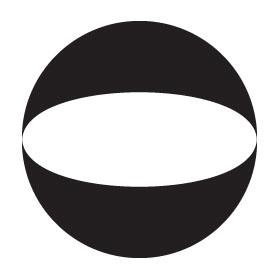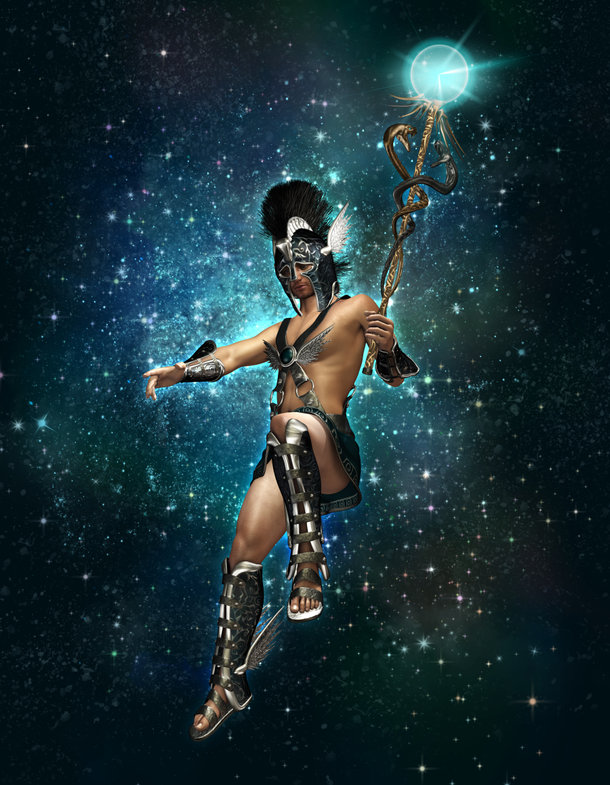 Submitted by Jacob Weiskopfh Ph.D on
Submitted by Jacob Weiskopfh Ph.D on

Derivative Images
To me, the name “God” is an amazing name for all the dreams of humanity projected into one point. What would you name that? You would name it God. And that is what we need to do, to retake the “God” word but just give God proper qualities that we can actually believe in. In that case, Syntheos is the God that we choose to believe in and can believe in. Whatever that means - Alexander Bard, Alexander Bard on Syntheism: Death, God, the Universe, and Burning Man, The Forumist
Syntheism was coined from the Greek syntheos (from syn- for with or creating with and -theos for god). It implies that the proper approach to the concept of God is that humanity has created, creates or will eventually create God – as opposed to the traditional monotheistic view that God created the world and humanity.

Syntheism Symbol
Syntheism is a new religious movement that is focused on how atheists and pantheists can achieve the same feelings of community and awe experienced in traditional theistic religions. The Syntheist Movement sees itself as the practical realisation of a philosophical ambition for a new religion dating back as far as Baruch Spinoza's pantehism in the 17th century and, most directly, British-American philosopher Alfred North Whitehead's pioneering work towards a process theology in his books Religion in the Making in 1926 and Process and Reality in 1929. Syntheism may also be viewed as a response to the lack of atheistic and pantheistic belief systems in Western cultures, while being more abundant in Eastern cultures, for example as Zen Buddhism , Dzogchen Buddhism, Advaita Vedanta Hinduism, and Jainism.
Syntheism is the belief that the classic division between theism and atheism in theology has become redundant and must be overcome to fulfill contemporary and future spiritual needs. This requires the acknowledgement that all metaphysical beliefs center on a divinity or focal point which is man-made. Therefore, all current and future religious beliefs are created by humans, as well as systems such as Individualism developed by philosophers like René Descartes and Immanuel Kant. Despite being human creations, what is important is that these beliefs strengthen, and not contradict, science. They must therefore be developed within a mopnist worldview (the conviction that there is one world and one world only, and that everything within this one world can affect everything else). In a more poetic vein, Bataille describes his atheology as “the art of non-knowledge”. He rather advocates a syntheist religion without a core set of beliefs.Participatory festivals with utopian hemes such as Burning Man are considered examples of syntheistic practice.
Swedish philosopher and burner Alexander Bard provides a lively introduction to Syntheism, a movement focused on how atheists can achieve the same feelings of community and awe experienced in traditional theistic religions.
So, does this make Hermes the representative of Syntheism and the Internet?

Image by ateliersommerland from http://from 123rf.com
Some speculation -
So messenger of the gods, icon of invention, patron of trade and commerce, quick thinking and not above a little chicanery, even a fraudster: you can see why I have called Hermes the internet God. In our world the internet would be his metier; guaranteeing next day delivery of goods ordered from Amazon or Olympia, even if you could never be quite sure whether what you were getting really was the genuine article; oiling the wheels of money exchange and transfer, while perhaps smiling with approval on those who manipulated the foreign exchanges or the libor rate to their own gain. Perhaps not above sending one of those messages from a mysterious source offering miraculous promises of untold wealth, if only you disclose your bank details. Exploiting the creative potential of the internet, for developing, for testing and for selling the latest must-have device. But perhaps at the same time hacking into webcams or infiltrating email accounts in order to exercise the sort of hidden but all-seeing surveillance that is surely the right of the unaccountable gods, whoever and wherever they might be.
Hermes would have adapted to the internet because he proved himself adaptable to changing times. By the time that Acts was written the educated elite had already decided that if there was truth in the stories of the gods, as there surely was, - one could no more expel Homer than we could Shakespeare even if some of his history is shakey – clearly that truth did not lie on the surface alone. The tales of the gods demanded interpretation to meet the modern age. Here Hermes came into his own. Any of you who are engaged in interpreting texts are engaged in the art of hermeneutics, and people have long seen a fortuitous link between the Greek verb to interpret, hermeneuo, and Hermes; Hermes is the arch-interpreter – for is not interpretation involved in all communication, whether or not from the gods? Little wonder then that Hermes himself was interpreted as the word when it is expressed, as reason as it is articulated; the very antithesis of the mumbo-jumbo of fable and knee-jerk ritual. When the people of Lystra identified Paul as Hermes because he was the chief spokesman, the author of Acts, quite deliberately I think, used the phrase, ‘the guide of the word’, ‘the leader of the word’, of the logos, very much the designation that the philosophers gave to Hermes. So, would Paul or Hermes best demonstrate a belief in God that could be celebrated by the word, spoken, preached, argued and heard, written, that could be translated and interpreted, re-translated and re-interpreted? A longer sermon would trace how Hermes has continued to fascinate and to invite followers, after the triumph of Christianity in the Roman Empire, during the Renaissance, during the Victorian period. Perhaps in the age of the internet, when some again see Christianity as caught in ways of thought and belief that belong to the past, Hermes still has a challenge of offer – the challenge of being interpreters, faithful interpreters of the Gospel, for today and tomorrow. - Professor Judith Lieu https://www.robinson.cam.ac.uk/college-life/chapel/sermons/olympian-gods/hermes-the-internet-god
- 634 reads